
Following the Welsh Government's announcement yesterday that people from two separate households will be allowed to meet outdoors and exercise within a rule-of-thumb travel distance of five miles from Monday, Mountain Rescue teams in Wales have released a joint statement for walkers and climbers.
'The volunteers who provide this emergency service thank all those who have taken heed of notices not to venture onto the hills or mountains during the strict lockdown period. It has been remarkably quiet for all the teams which we have truly appreciated,' the press release reads.
The First Minister's announcement on Friday means that some restrictions in Wales are being relaxed from Monday, resulting in similar social and travel freedoms to those announced in Scotland and England this week. Restrictions will now permit some additional travel to be allowed up to about 5 miles from home. In response, the rescue organisations have shared some key messages, summed up with:
'Don't spread disease but DO spread these words to others who may be thinking of coming to the hills and mountains of Wales.
'Please remember, we are here to help not judge. Accidents may happen to any of us. Please try to BE SAFE, STAY SAFE and help to keep us SAFE.'
The mountain rescue and search and rescue teams from across Wales would like to draw attention to the following specifics of rescue post-strict lockdown, as outlined in their press statement:
'Mountain Rescue, Lowland Rescue and Cave Rescue will always and continue to respond to calls for assistance, but not in the same way as before.
These are some of the issues that we have and adaptions we have had to make:
A number of the teams are reduced in operational size, as many of our volunteers are employed as key workers and must be very careful about taking additional risks.
This results in less people to carry the equipment needed for a call out. For example, for a lower leg injury incident on the hills, the team will need first response sacks, shelters, casualty bags, medics bag, oxygen and Entonox gases, a stretcher, ropes plus much more.
One of our big changes is the increased need for additional PPE that will have to be worn by members. This includes wearing full waterproofs, regardless of the heat, face masks, surgical gloves and eye protection. This not the usual kit for striding up the hills with an additional rescue load and will also have an impact on our operational effectiveness due to the risk of overheating and fatigue.
We have to maintain social distancing as best as possible. This means fewer members to load up team vehicles; more members using private vehicles to go directly to a rendezvous point. This has an impact on parking and congestion issues. These concerns continue onto the hill. We will be trying to keep the hill teams together, but 2m apart. This is almost impossible in some places and not feasible when we are assembling and rigging the rescue equipment on site and carrying the stretcher from the hills.
We have a revised administration process of our First Aid and Casualty Care systems, as we have to be very careful we don't do any medical interventions on a casualty which could increase the potential spread of Covid-19.
On a regular basis, we work with different helicopter services. These are also the under the strain of adapting to new processes, therefore their service may be reduced too.
Our post call-out procedures have also dramatically increased in time and effort. A full decontamination of team members' personal kit at home; the full decontamination of the rescue team kit, vehicles and base's must be done after every call out. We don't want to spread this disease. This is time consuming and is an additional cost to the charities.
We have had to create an administration process to keep in touch with the casualty and their party for three days, plus also all team members involved with the incident to check for any symptoms of COVID-19.
And if one of the above becomes positive, it means isolation of all the others for 14 days.
But YOU can help
Follow the official advice to avoid hotspots and choke points. Social distancing rules are valid in the car parks (if open), at Public Toilets (if available,) on footpaths and footbridges, summits and picnic tables.
Reduce the risk of needing to call for assistance, by taking less risks, keeping to familiar routes, being suitably equipped and more self-reliant.
Consider self-rescue. Shout to others in the area. If you really are lost or stuck and cannot self-rescue, then DO call 999. Ask for the Police and then ask for Mountain Rescue. The Team Leader may be able to locate you through your mobile phone and be able to guide you to safety.
If there is an injury or illness, in your group, carry out First Aid and if necessary, DO call 999. Ask for Police and Mountain Rescue. Accidents DO happen. We volunteer to assist those in need.
You should consider carrying additional clothing and sustenance in case the Rescue team takes longer to get to you. Remember, we too have not been able to climb the mountains to maintain hill fitness.
In addition, you might want to consider taking a Buff or face mask of your own, so as to protect others and hand sanitizer to protect yourself. Just think how many people ahead of you opened that gate or grabbed that hand hold and now you are rubbing sweat from your face or eating your sandwiches.'



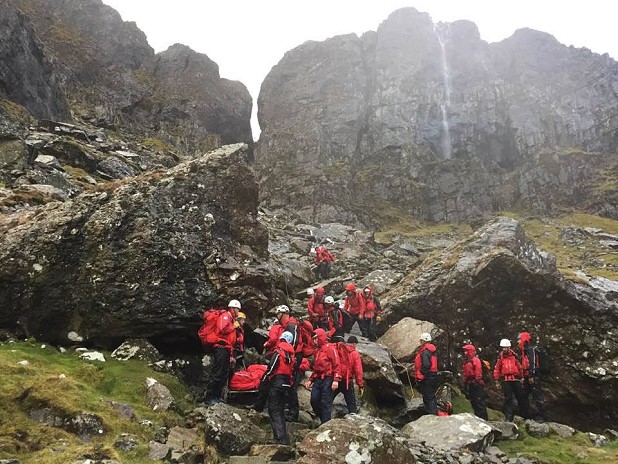



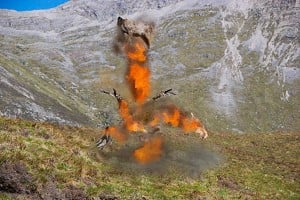
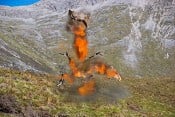
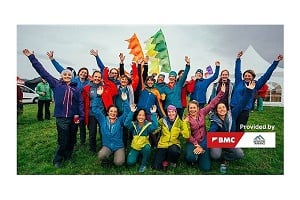
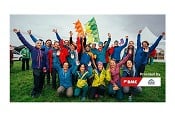
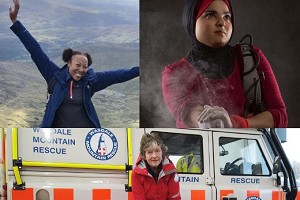
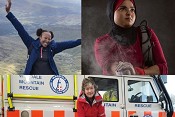
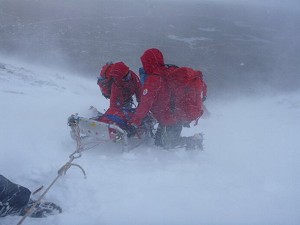
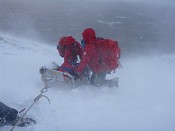
Comments
I really hope I'm wrong, but I'm not sure the above statement is correct, as far as I'm aware exercise must still start and finish from home.
I'm curious as to the requirement to wear full waterproofs throughout a potential rescue. What's normal practice in summer conditions, and why wouldn't that be okay?
From the government advice:
"Can I travel to do sports outside my local area?
If your preferred form of exercise or leisure is one that can only be undertaken in specific locations, this still needs to be carried out locally. Examples of this might include golf, angling or watersports. If there is a place where you can do these within your local area, then you are free to do so, but it would not be permissible to drive outside your local area for these purposes."
It goes on to say more, but I read that as travel within the 5 miles (what local refers to) is fine. I'll be driving to climb some days, but I'm quite enjoying biking and walking there at the moment.
Have a look at the section entitled Can I travel to do sports outside my local area in this document https://gov.wales/changes-coronavirus-regulations-1-june-frequently-asked-questions?fbclid=IwAR3UyiLu1QlmKEZvgpjCAne1Q6uNCo7sJdGWkEd6ADydrqg5Pe1a4-LvTGY#section-43005 . The implication is that travel within your local area will be OK from Monday.
In reply to jezb1 & John 2
Thanks :-)
So glad I bolted all those routes at Benllech and Fedw Fawr now!
Slate Quarries are ok if I park my car in Deiniolen ;-)